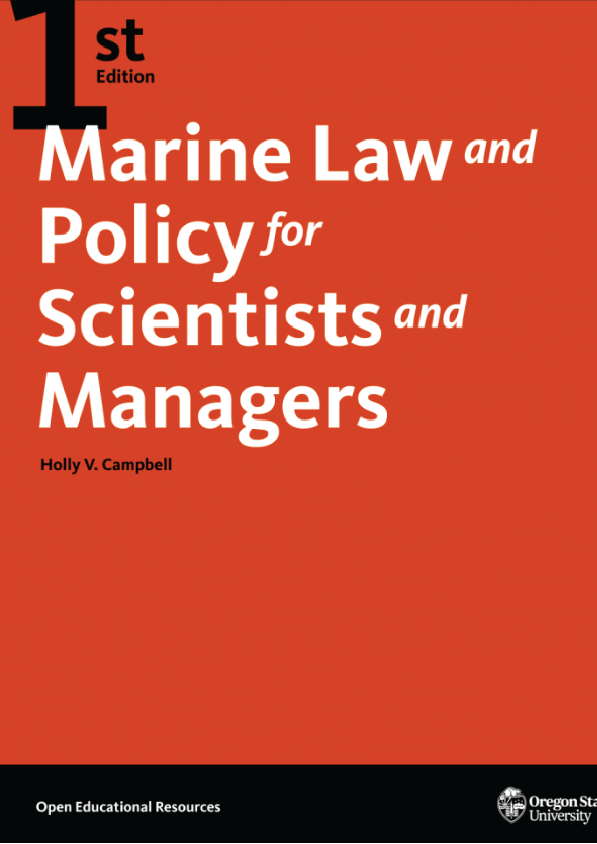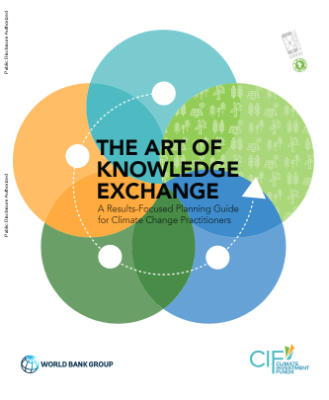Introduction
The oceans cover some three-quarters of the Earth. The United States (U.S.) alone governs an ocean area—consisting of both water and land below the surface–over three million square miles, more extensive than the fifty states’ land area. U.S. management spans fisheries, wildlife, energy and minerals, telecommunications, shipping and transportation, weather prediction, military training and national security on behalf of the people of the U.S., who are the ocean’s owners. Even single-sector management, such as fisheries, is complex and involves many different laws and government players that have the challenging goal of balancing conservation with resource harvest or extraction. Many different agencies and personnel are involved in ocean law and policy; many former students are now professionals within this fascinating management mosaic. Let’s get started on our quest to develop a foundation for ocean law knowledge by beginning to understand how things fit together.
Collectively, the oceans are estimated by the United Nations to represent assets equivalent to the seventh largest economy in the world. Within a single nation, such as the United States, the coasts and oceans represent a vast and diverse wealth in terms of living and nonliving resources, jobs, recreation and cultural amenities. The ocean economy is complex and difficult to measure. According to the US Ocean Commission’s 2004 Final Report, values that are critical but evade measure include intangibles such as “clean water, safe seafood, healthy habitats, and desirable living and recreational environments,” a lack of information the Report says have prevented full appreciation by Americans of the economic importance of oceans and coasts. The Report also notes, for comparison, that while the US spends $100 million annually on economic research on agriculture, ocean-related employment (two million jobs, $117 billion) is 1.5 times than agricultural employment (2000) and the economic output of the ocean economy in 2000 was 2.5 times larger than that of agriculture.
A major feature of the ocean economy pertinent to ocean law study is that the nations’ oceans are owned by its citizens.
The Public Trust Doctrine
One of the most interesting and unique management aspects of the oceans is that they are ours and cannot be privately owned. This has several important implications for how we take care of, use, and impact ocean ecosystems and marine resources. For public ownership of the oceans, we have an ancient legal doctrine to thank: the Public Trust Doctrine. The Public Trust Doctrine began as part of the Institutes of Justinian, a Byzantine Roman emperor who codified (made into law) the concept in the year 533. The Institutes had the force of law, and in fact served as the learning materials for first year law students for hundreds of years! Justinian’s laws included, for our purposes, that no one could own the air, shoreline (seaward of the high water mark), the sea bed, oceans waters, running rivers or the resources of animals therein. The sovereign holds these resources in trust for the people of the nation.
This Public Trust carries affirmative legal duties, the same as any form of modern trust, as in a family trust managed by a financial institution. The Public Trustee (the sovereign government) has the duty to conserve and protect the contents of the Trust: the duty not to commit waste of the Trust’s resources, and so forth.
The Public Trust Doctrine eventually became part of English common law, the basis for our own case law in the United States. Far from remaining a static or stale ancient doctrine, the conceptual framework of the Public Trust continues to evolve. The most important thing you need to remember for our explorations in this course is that the public maintains a powerful and defensible legal interest in coastal waters (where the sovereign trustee is the coastal state government), the oceans, their ecosystems and their resources (living and nonliving). For example, if a coastal state leases a parcel of its seabed for the purpose of anchoring a device to harvest ocean energy such as from wind or waves, on behalf of its citizens the state must collect a fair rent through a lease. Similarly, for activities in federal waters petroleum companies must, under law, provide a “fair return in value” of resources extracted from the outer continental shelf to the American people via the United States Treasury, because these are public resources that government manages on the public’s behalf.











